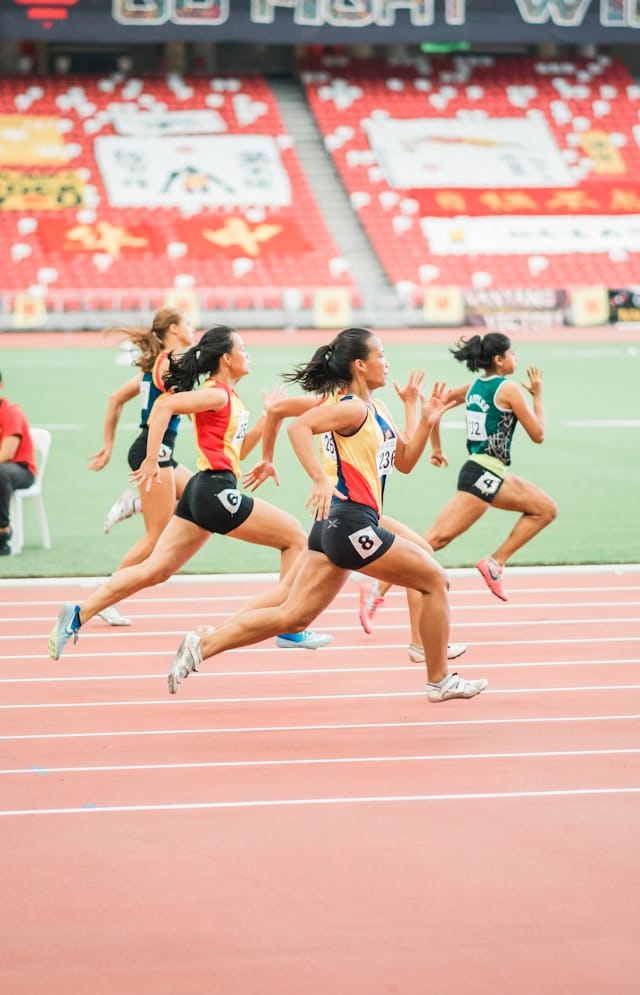What are the best practices for sleep hygiene to maximize recovery for elite athletes?

A good night’s sleep is more than just a pleasant downtime. For athletes, it’s the foundation of their performance and recovery. In this article, we explore the latest findings from scientific research and practical advice from experts on sleep hygiene to help elite athletes achieve their maximum potential. We will delve into the importance of sleep quality, timing, and environment for athletic performance and recovery.
The Importance of Sleep Quality for Athletic Performance
Sleep isn’t just about logging hours in bed. Quality sleep plays a significant role in an athlete’s overall health and performance.
A découvrir également : What are the latest innovations in sports wheelchairs to enhance mobility for Paralympic racers?
According to a study published on PubMed, lack of quality sleep can lead to decreased cognitive function, mood disturbances, and reduced physical performance. Quality sleep is deep, uninterrupted sleep that allows the body to enter into the sleep stages necessary for physical recovery and cognitive function.
Elite athletes require more sleep than the average person due to the high physical demands of their training. Studies found on Google Scholar suggest that athletes need about 9 to 10 hours of sleep per night for optimal performance.
En parallèle : How does the type of court surface impact injury prevention strategies in tennis?
For athletes, a key component of quality sleep is the REM (Rapid Eye Movement) sleep stage. This is when the body undergoes restorative processes. During REM sleep, the body releases growth hormones that aid in recovery from intense workouts and matches, thereby enhancing the athlete’s readiness for subsequent training or competition.
Timing Your Sleep for Optimal Athletic Performance
Contrary to popular belief, when you sleep matters as much as how long you sleep. The timing of your sleep can significantly affect your athletic performance and recovery.
Strategic sleep scheduling can help align the body’s natural circadian rhythm with training and competition schedules. This can optimize the body’s physiological functions, including muscle recovery and energy production.
For instance, elite athletes who train or compete in the morning should aim to sleep earlier at night to ensure they get adequate rest. Similarly, those with night-time events should try to delay their sleep slightly to perform at their peak during these later hours.
Athletes should also consider napping as part of their sleep schedule. Scientific studies from reputable platforms like PubMed indicate that short power naps of about 20-30 minutes can improve alertness, mood, and performance.
Creating an Ideal Sleep Environment
The environment in which athletes sleep can significantly influence the quality and duration of their sleep.
A dark, quiet, and cool environment is recommended for optimal sleep. Athletes can use blackout curtains, earplugs, or white noise machines to create such an environment.
The use of electronic devices before bed can interfere with sleep quality. The blue light emitted by these devices can disrupt the body’s natural sleep-wake cycle. Athletes should, therefore, avoid screens at least an hour before bedtime.
Sleep surfaces also play a crucial role in sleep quality. A comfortable, supportive mattress and pillows can help promote deep sleep and prevent pain or discomfort that could interfere with sleep.
Nutrition and Its Impact on Sleep
The relationship between nutrition and sleep is bidirectional. What athletes eat can affect their sleep, and how well they sleep can influence their eating habits and nutritional needs.
Consuming balanced meals throughout the day can ensure a steady supply of nutrients needed for sleep. Athletes should also avoid heavy meals, alcohol, and caffeine close to bedtime, as these can disrupt sleep.
Hydration status can also impact sleep. Both dehydration and excess fluid consumption before bed can interfere with sleep. Athletes should, therefore, monitor their fluid intake to ensure it’s optimized for their sleep and performance needs.
The Role of Sleep in Mental Health and Recovery
Finally, but certainly not least, sleep plays a pivotal role in maintaining the mental health of athletes. Sleep deprivation can lead to mood swings, anxiety, and depression, all of which can affect an athlete’s performance.
Sleep is also essential for cognitive functions like memory and learning. A good night’s sleep can help athletes learn new strategies, remember plays, and make split-second decisions during competition.
In terms of physical recovery, sleep is when the body repairs muscle tissue and replenishes energy stores. Athletes who prioritize sleep will likely experience faster recovery times, reduced injury risk, and improved performance overall.
The science of sleep is complex and individualized, and what works for one athlete may not work for another. However, by understanding the importance of sleep quality, timing, and environment, and the role of nutrition and mental health, athletes can experiment and find a sleep routine that works best for their bodies and their sports.
Sleep Interventions and Strategies for Athletes
To maximize recovery and performance, elite athletes should consider implementing various sleep interventions and strategies. According to a multitude of studies available on Google Scholar and PubMed, interventions can range from sleep education programs to the use of sleep enhancing tools and technology.
Sleep education programs, which teach athletes about the importance of sleep and provide practical tips for improving sleep hygiene, can be beneficial. These programs may cover topics such as the impact of sleep deprivation on performance, the importance of consistent sleep schedules, and the effects of electronic devices on sleep quality.
Sleep enhancing tools and technology like sleep trackers can provide athletes with valuable insights into their sleep patterns. This data can be used to tweak their sleep routines, such as adjusting bedtimes or wake-up times to maximize sleep quality, and thus athletic performance.
In case of persistent sleep disorders, athletes may need to seek professional help. Specialists like sleep psychologists and sleep physicians can provide targeted treatments and interventions, such as cognitive behavioral therapy for insomnia.
Furthermore, strategic use of jet lag management strategies can be crucial for athletes who frequently travel for competitions. Techniques such as adjusting sleep schedules to the new timezone in advance or using light therapy can help minimize the effects of jet lag on sleep quality and athletic performance.
Conclusion: The Critical Role of Sleep for Elite Athletes
To summarize, sleep is a vital component of recovery and performance for elite athletes. Quality sleep, well-timed to align with the body’s natural rhythms, in a conducive sleep environment, can significantly enhance an athlete’s readiness for training or competition.
Optimal nutrition can support sleep quality and duration, while good sleep can promote better decision making and reaction time in sports. Implementing sleep interventions and strategies, such as sleep education and use of sleep enhancing technology, can help athletes achieve their best sleep possible.
While the science of sleep is complex, it’s clear that its role in the life of an athlete is paramount. Sleep deprivation can be detrimental, leading to poorer performances, slower recovery times, and even increased risk of injury. On the other hand, prioritizing sleep and adhering to best practices in sleep hygiene can yield substantial improvements in both physical and mental performance.
From the bedroom to the field, track, or court, sleep is a game-changer. As such, elite athletes aiming for the pinnacle of their sport must give sleep the same importance they accord their training and nutrition. It’s not just about getting more hours of sleep; it’s about optimizing each aspect of sleep to push the boundaries of what’s possible in athletic performance.
